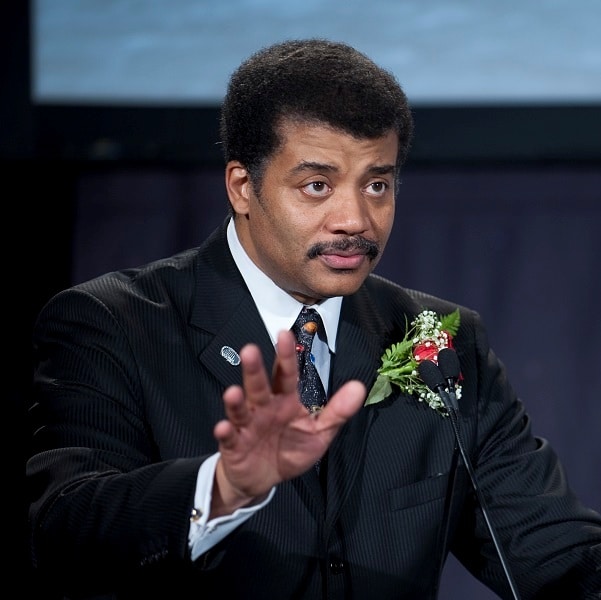Rashida Jones
Jones went to Harvard University, where she studied religion and philosophy. She graduated in 1997. The actress, who is also the daughter of music producer Quincy Jones, is most famous for her role on the NBC TV comedy Parks and Recreation.
John Legend
The Grammy Award-winning singer and songwriter went to the University of Pennsylvania. He studied English with a concentration in African-American literature and culture and graduated in 1999. His albums include Get Lifted (2004), Once Again (2006), Evolver (2008) and Love in the Future (2013).
Aisha Tyler
The comedian and actress went to Dartmouth College. She graduated in 1992 with a degree in government and environmental policy. She is most famous for lending her voice to FX‘s adult, animated show Archer and for serving as one of the co-hosts on CBS’s daytime show The Talk.
Tatyana Ali
The actress graduated from Harvard University with a degree in African-American studies and government in 2002. She is famous for TV role as Ashley Banks on NBC’s The Fresh Prince of Bel-Air (1990-1996).
David Alan Grier
Grier went to graduate school at Yale University, earning a master of fine arts degree in 1981. He has been in many films and TV shows; however, he is most notable for being featured on Fox’s sketch comedy series In Living Color (1990-1994). The show was produced by actors, comedians and siblings Keenan Ivory and Damon Wayans.
Tyra Banks
The supermodel, film star and TV personality went to multiple universities. In 2012, she graduated from Harvard Business School. Some of her notable TV shows include The CW’s The Tyra Banks Show (2005-2010) and America’s Next Top Model (2003-current).
Alicia Keys
The Grammy Award-winning singer went to Columbia University in 1998, but she dropped out a month later. Her most recent album is Girl on Fire (2012).
Robert L. Johnson
Johnson, a businessman, attended Princeton University. He graduated in 1972 with a master’s degree in public/international affairs. Johnson founded the cable network Black Entertainment Television (BET) in 1980.
Angela Bassett
The Oscar-nominated actress went to Yale University. She earned a bachelor’s degree in African-American studies in 1980 and a master of fine arts degree in 1983. She is known for her portrayal of legendary singer Tina Turner in the film What’s Love Got to Do With It (1993), for which she was nominated for an Academy Award for Best Actress. She is currently working on FX‘s upcoming American Horror Story: Freak Show. Produced by Ryan Murphy, American Horror Story is a series that focuses on horror tropes such as witches and serial killers. Bassett is married to fellow Ivy Leaguer Courtney B. Vance.
Courtney B. Vance
Vance studied at Harvard University. He graduated in 1982 with a bachelor’s degree in history and went on to Yale to earn a master’s in drama in 1986. He is most famous for his role on NBC’s Law and Order: Criminal Intent (2001-2011). He is married to fellow Ivy Leaguer Angela Bassett.
Hill Harper
The actor graduated with a bachelor’s degree in theater from Brown University in 1988. He went on to Harvard to earn a master’s degree in public administration in 1992. Harper has been in numerous films and TV shows. He is notable for roles on CBS’ CSI: New York and USA’s Covert Affairs.
Ryan Leslie
Leslie went to Harvard University and earned a bachelor’s degree in government and economics in 1998. He is a music producer who produced recording artist Cassie’s hit single Me & U (2006). A recording artist himself, Leslie released a self-titled album in 2008. He earned a Grammy nomination in 2011.
Sanaa Lathan
The actress studied at Yale University, where she earned a bachelor’s degree in drama in 1995. She is most notable for films such as The Best Man (1999), Love and Basketball (2000) and Brown Sugar (2002).
Joy Bryant
Bryant studied at Yale University on a full scholarship. She left school in the late 1990s to pursue a modeling and acting career. Her films include Antwone Fisher (2002) and Get Rich or Die Tryin (2005). She currently stars in the NBC TV show Parenthood.
Brian J. White
White studied at Dartmouth College. He graduated in 1997 with a bachelor’s in political science, psychology and theater arts. White went on to become an actor, starring in movies such as director Tyler Perry’s Good Deeds (2012) and The Cabin in the Woods (2012).












